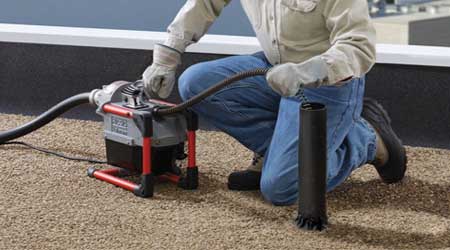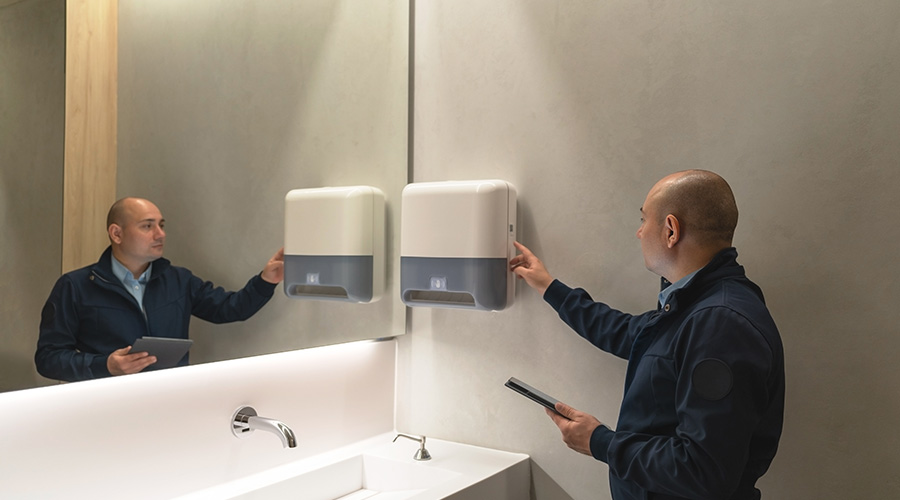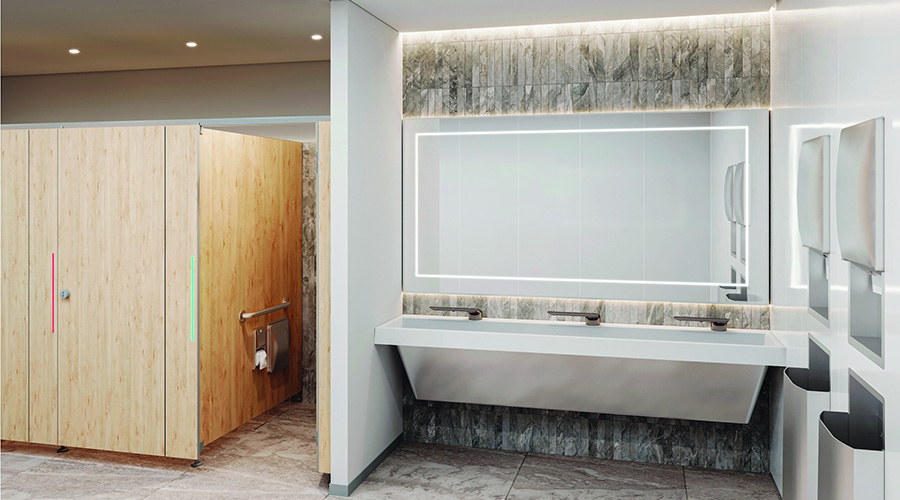 Successful drain cleaning operations require that managers understand technician needs as they relate to installed systems and equipment.
Successful drain cleaning operations require that managers understand technician needs as they relate to installed systems and equipment.Drain Cleaning: Money Matters
Successful drain cleaning operations require that managers understand technician needs as they relate to installed systems and equipment.
Budgets are always a consideration for managers, and making decisions on drain cleaning equipment is no exception. Managers must decide whether it makes more financial sense to rent or buy a piece of equipment.
As a rule, if a drain cleaning job is on the annual preventive maintenance schedule several times, it happens often enough to justify having the trained in-house skills and buy equipment to do the job. If not, it would be more cost effective to rent the equipment when needed.
Managers have another option besides renting or buying equipment and using in-house skills: hiring a contract drain cleaning. This tactic can be especially beneficial for seldom-occurring jobs that require expensive equipment. Equipment suppliers might be able to provide reliable contractors who specialize in the work managers are seeking.
This approach can yield the special equipment and skilled operators who can do the job thoroughly and efficiently while protecting the drain fixtures and piping from damage. A contractor also can make videos of that part of the drain system showing pipe wall conditions for future projects and training.
The contractor also can demonstrate tactics related to equipment use that will speed up the job. If a blockage material is unknown, the technician can extract a piece of the material to inspect and decide on effective attachments.
Another tactic is using the smallest attachment to punch a hole in the blockage. Water will flow through the hole and clear loose debris away from the blockage site quicker. Following with the proper size and type attachment will completely clear the blockage faster with minimum stress on pipe walls.
Among the additional benefits a plumbing contractor can bring to the job are experience and special, customized tools the contractor has hand-made.
What caused the problem? Where is the problem located? The contractor knew this had to be a blockage in a collector that is common to all of the backed up drains. The contractor quickly found the correct cleanout plug to open and drain the line, looked in and found a solid blockage composed of sewage, as well as a chicken bone stuck in the line against a shrub root that was growing into the sewer line through a pipe joint.
The contractor had run into this situation several times. By using a 2-foot steel bar with a chisel welded on the end, he removed the root obstruction cleanly, and cleared the blockage from the line.
Two advantages resulted from the decision to call a plumbing contractor. First, based on his experiences, he quickly located the cleanout closest to the problem. Second, once he located the blockage, he had the special tools needed for the conditions.
Thomas A. Westerkamp is a maintenance and engineering management consultant and president of the work management division of Westerkamp Group LLC.
Related Topics:














